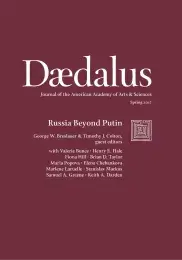Ideas, Ideology & Intellectuals in Search of Russia’s Political Future
The intellectual discourse of any state can function within two broad paradigms: consensual and pluralistic. In the first case, political elites, intellectuals, and the public agree on the base parameters of what constitutes “the good life” and argue about the methods of application. In the second case, participants hold radically different, incommensurable views, which coexist in society. This essay argues that the Western political system broadly rests on the politics of liberal consensus, formed throughout the period of capitalist modernization. But Russia's history took a different turn, following a path of alternative modernization. This engendered the politics of paradigmatic pluralism, in which a number of radically different politico-intellectual frameworks struggle for the dominant discourse. This essay examines these paradigms and argues that, due to the nature and substance of these models, fundamental change of Russia's dominant discourse, along with its main politico-institutional parameters, is unlikely.
Russia’s extant political system is stabilized through the politics of paradigmatic pluralism. More specific, two broad and radically different paradigms of “the good life” are present in Russia: pro-Western liberal and state-centered traditionalist.1 Their mutual questioning and criticism allow society to function within a relatively stable framework. While the two alternatives have struggled for discursive supremacy, the nativist and state-centered paradigm has emerged as a hegemonic discourse, with the support of the majority of the population. It is focused on avoiding shocks to the extant system and on sustaining sociopolitical stability. This essay demonstrates that the paradigmatic split in Russia has been historically determined. It continues with an examination of the main dimensions of Russia’s hegemonic discourse, pointing to its general inclination toward national reconciliation and political stability. It then ponders the potential breakdown of the dichotomous nature of the existing ideological . . .
